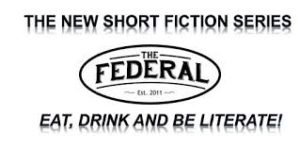New Short Fiction Series presents
“The Boombala Club and Other Stories” by Douglas Wood
at the Federal Bar and Grill
5303 N. Lankershim Blvd. N. Hollywood, CA 91691
Reference Materials
These are a few of my favorite resource books that informed and inspired me as I wrote The Bookist. Buy them until you can buy my book.
Battle for God by Karen Armstrong
This book traces the history of Orthodox Judaism, fundamentalist Islam and fundamentalist Christianity, and shows the fear at the heart of all three. Ms. Armstrong is a former nun, but still a believer and she tackles the scholarly work well and makes the connections between the three fascinating. I must admit I flagged a little during the Shiite versus Sunni sections, but let’s blame that on me. She’s a very good writer.
I fashioned the imaginary Bookist religion of The Bookist out of the intersection of the three great monotheistic faiths: their mistrust of women, strict adherence to dogma, dietary laws, etc. Some of it I just made up.
War Is a Force That Gives Us Meaning by Chris Hedges
Hedges was a journalist on the front lines of several genocides including Rwanda and Bosnia and he outlines how a civilized modern society can turn on its own in the most vicious, savage manner. As a writer he’s very good and as an analyst he’s amazing. This was invaluable in my formulation of the after-effects of the Bookist revolution. Once you see the patterns, it’s depressingly easy to see them occur again and again.
Handmaid’s Tale by Margaret Atwood
I read it when it came out in, what? 1986 or something. When I started writing my book, I made the decision not to read it again. But yeah, the influence is absolutely there. The Bookist shares a similar timeline, that is non-science fiction but set in the near future. Neither book has any science in them.
I considered making up a country and setting the story there, but decided against it.
Mostly, what Handmaid’s Tale and The Bookist share is a creepy totalitarian tone: that racist, classist, hilariously misogynistic (if it weren’t so close to being true) attitude.
The Noonday Demon by Andrew Solomon
Get this book, if you or someone you know suffers from depression. Stop reading this, click the link and go buy it. Andrew Solomon is a gifted writer who suffers from major depression himself. He looks at depression from many, many different angles: historical views of depression, literary, societal, modalities of treatment and the result is a fascinating look at the disease.
He writes about how it is currently fashionable to think of depression as a middle and upper class affliction. “What does SHE have to be depressed about?” But he interviews people all over the world, some born with depression, others who become depressed after war, genocide or other calamities befall them, to show how depression is a part of their lives. Or how inner city poverty and growing up with a lack of hope can change brain chemistry.
Philosophically, he asks whether the depressive is more herself when she is not taking medication, the antidepressant changing her into a more functional, happier, but ultimately false version of her flawed self. (Like wearing glasses for near-sightedness restores one to perfect vision, for instance.) The true personality is flawed, corrected by psychiatric or medical intervention.
Or is the medicated personality the truer one? Whether from situational or chemical reasons, depression has altered a normal person and the antidepressants are used to restore someone to the person they would have been if they weren’t depressed. (Like taking away cataracts, to restore sight for instance.) The true personality, masked by the illness, is then restored by psychiatric or medical intervention.
I drew upon some of my own struggles with depression when writing about Julia’s descent, but Solomon’s work resonated with me so completely, that I know I incorporated some of his keen observations as well. Great prose, wonderful insights. Life changing. Read it.
Misquoting Jesus: The Story Behind Who Changed the Bible and Why by Bart D. Ehrman

Since the invention of the printing press, we take for granted the accurate reproduction of texts. Most people assume that when they read the New Testament, they are reading an exact copy of Jesus’ words or St. Paul’s writings. But in studying the original Greek manuscripts, Ehrman finds that many cherished biblical stories contain intentional and accidental alterations by scribes that dramatically affected the subsequent versions of the Bible as we know it today.
Sometimes there were errors of transcription or mistranslated words, that get passed from document to copy through several generations. Then later scribes tried to fix the errors, or take out parts that didn’t square with their reigning philosophical bent.When not all the ancient manuscripts square with each other, how did they decide what to keep in or excise? Who decides? The oldest documents may or may not be most accurate. It’s fascinating reading.
Bart Ehrman is the chair of the Department of Religious Studies at University of North Carolina/Chapel Hill, so as inflammatory as the above paragraphs may sound, he’s not some crackpot conspiracy theorist sitting in a dark basement full of guns, sending out chain emails about the coming revolution. He’s a world-class biblical scholar.
In one incarnation of The Bookist, I was fooling around with the notion that illiterate women would copy the text of the Book letter by letter, keeping the manuscript beyond the of reach of the hostile government. Most of that went by the wayside, but little peeks of that idea remain.


